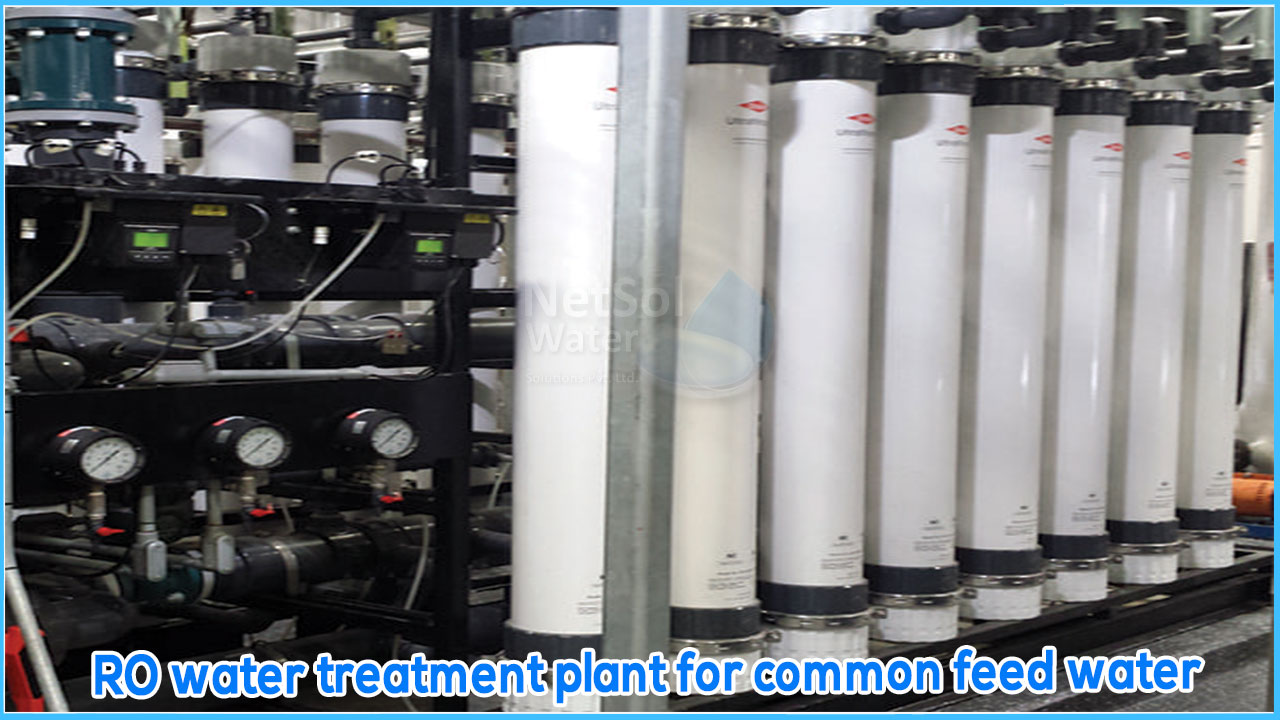WHAT DOES FEED WATER MEANS?
Feedwater is water that has been purified or preheated before being supplied to boilers for the production of hot water and steam, or it can remain still. It's most commonly found in thermal power plants, where it's stored and conditioned in tanks called boiler feedwater. Feedwater is also used in other industrial facilities, such as the petrochemical industry, where boilers are an essential part of the manufacturing process. To prevent scaling, rust formation, and other corrosive effects, high-quality water is required.
BACTERIAL INFECTIONS
Harmful bacteria can be found in feed water and these can cause illnesses, fatigue and nausea to people who work in these conditions. But NETSOL RO water plant treats your feed water and eliminates harmful microbes, making it safe for work. Bacteria can be eliminated when heated to 60-degree Celsius or when treated chemically. RO water treatment plant does this process both in a seamless and efficient manner.
CHLORINE
In water treatment, chlorine is typically applied in diluted quantities at the feed water source to clean out any microbes. Chloramine on the other hand is a similar chemical commonly used by municipal water treatment organisations. It tends to generate few side-effects in humans when used. Amongst industrial RO water treatment plant, NETSOL WATER implements this advancement to produce satisfying results.
LEAD
Flaking, melted, ageing or damaged lead pipes can infuse toxic materials in the water they carry. When used in washing or rinsing it can damage certain industrial products. Lead exposure has been linked to cancer, heart failure, brain damage and blood poisoning. Trace quantities of lead can build up to toxic quantities since the water is used and recycled in a closed system. Asides from providing water treatment solution for industries, NETSOL WATER is a renowned for giving solutions through RO plant for apartment.
CHROMIUM
Industrial sites are a common source of Chromium 6 cross-contamination. Either through accidentally entering groundwater or closed systems, it can travel into water supplies as well as feed water and wastewater lines. NETSOL’s RO water treatment equipment specializes in eliminating these harmful contaminants effectively. Unsafe wastewater outlets are a common source of chromium contamination. As a well-known RO water plant manufacturer, we strive in assisting industries from preventing their machineries from harmful contaminants.
HOW CAN FEED WATER BE TREATED?
Since water treatment is critical to the proper operation of boilers, boiler feedwater treatment is a required process. This is due to the fact that using untreated water in extreme temperature and pressure environments can lead to a variety of problems. Overheating, high maintenance costs, lower heat transfer efficiency, and other issues are among them. As a result, before it is distributed to other parts of the system, feedwater should be properly treated.Corrosive compounds are removed from feedwater during treatment, typically with the help of a deaerator.
FEED WATER TREATMENT
Feedwater treatment is a pre-treatment process used in boiler systems to control deposition, eliminate impurities, and prevent corrosion. Water in a boiler system is converted into steam, which expands up to 1000 times as it travels through steam pipes at speeds of 100km/hr.
Steam is required to transport heat and energy from central boilers to their final destination. A plant or facility that produces steam suffers from corrosion and scale formation if the feedwater is not properly treated.
HOW DOES NETSOL FEED WATER TREATMENT WORKS?
Corrosion is one of the most serious issues in steam systems that use a lot of water. Fresh water contains a lot of dissolved oxygen. When this oxygen is combined with high temperatures, it becomes extremely corrosive, especially to the steel piping in carbon-based boiler systems. To prevent corrosion, the oxygen present in the pure water used in the production of saturated steam must be removed using chemicals and de-aeration towers. This is what NETSOL feedwater treatment is all about. Sodium erythorbate, sodium sulfite, and hydrazine are the most common chemicals that act as scavengers during the process.




